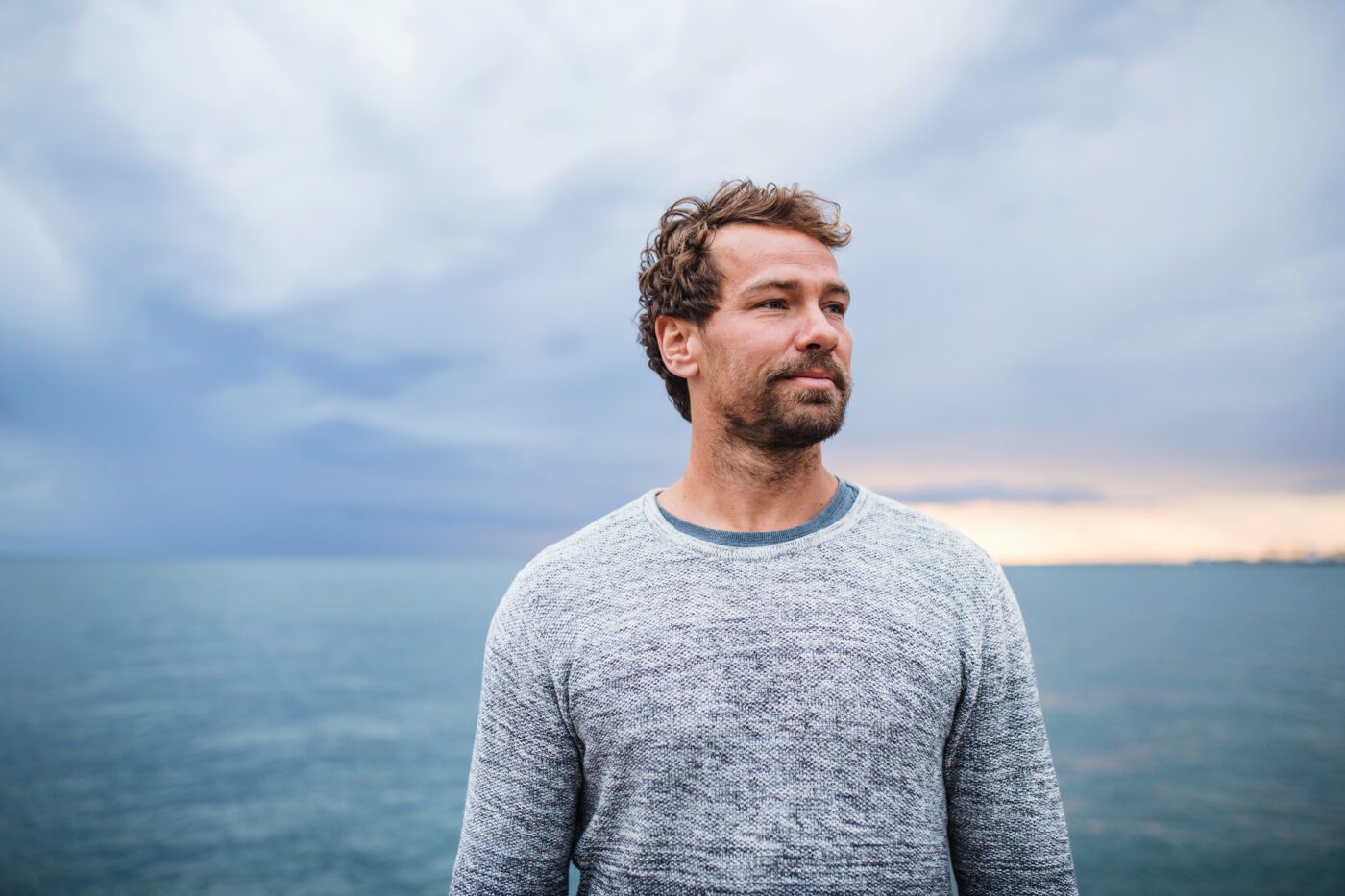Throughout his lifetime Charlie Wedemeyer has been an inspiration to others. It began with his high school sports career, carried into his college football career, followed by teaching and coaching. Today, he inspires others through his will to live.
Wedemeyer, now 59, has lived with amyotrophic lateral sclerosis, or Lou Gehrig’s disease, since he was 32 years old. At the time of his diagnosis, doctors said Wedemeyer would only live one to three more years–it’s been almost thirty.
“They throw up their hands now,” Lucy Wedemeyer said in a Detroit News article on December 30, 1987. “He’s outlived all the expectations.”
Growing up in Hawaii, Wedemeyer earned nine prep letters (three years each in each football, basketball and baseball) at Punahou High School . He then went on to play football at Michigan State under then head coach Duffy Daugherty, where he lettered in 1966 and 1968. His accomplishments were recognized as he was named Prep Player of the Decade for the 1960’s in his native Hawaii .
Wedemeyer came to State as a quarterback, but standing 5-7, Daugherty realized Wedemeyer wouldn’t be tall enough to compete at quarterback in the Big Ten. He went from quarterback to receiver in 1968, which proved to be a success.
“It was quite a surprise being moved out there,” said Charlie in the Sept. 17, 1968 Grand Rapids Press. “But the coaches say I’m doing fine and that’s good. I want to play–where doesn’t make a lot of difference.”
Following his last season as a Spartan, Wedemeyer was selected to play in the East-West Shrine All-Star game and the Hula Bowl.
Wedemeyer went on to earn his masters from Central Michigan in 1972. He took a job as a community school director in the area just south of San Francisco . He left that job to take on a position teaching math in Los Gatos , Calif. , where he was also an assistant football coach and basketball coach. He was promoted to head football coach for the Wildcats in 1977.
It was just a year later that Wedemeyer was diagnosed with ALS, the debilitating disease that attacks motor neurons, slowly causing the person with ALS to lose his or her ability to walk, speak, swallow and breathe.
Eventually the illness affected Wedemeyer’s speech, and he had trouble eating; then he stopped breathing, so a tracheotomy was necessary. Today, he can only move his eyes, eyebrows, lips and is on 24-hour-a-day life support.
But Wedemeyer is a testament to the phrase `life goes on.’ His life didn’t stop with the diagnosis or when faced with the effects of ALS. Through the help of his wife, Lucy, Wedemeyer continued his everyday activities, including both teaching and coaching. He taught math until 1981, and coached until January 1986 in a golf cart on the sidelines, Lucy reading his lips to interpret plays.
In his last game as the varsity coach, on Dec. 13, 1985, the Los Gatos Wildcats defeated the St. Francis Lancers 14-12 for the Central Coast Section Division I championship. The title was the seventh in his tenure and in doing so Wedemeyer was named California Coach of the Year.
“Charlie’s team wasn’t expected to win the league this year, but it’s a lot like him–it never gives up,” Lucy said December 13, 1985 in San Jose Mercury News.
In 1993, Charlie and Lucy founded the Charlie Wedemeyer Family Outreach, a non-profit organization dedicated to helping ALS patients and their families by offering hope through raising funds for research and patient services, by raising awareness, and by way of example.









